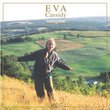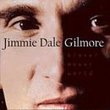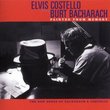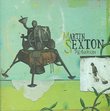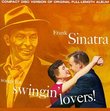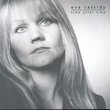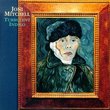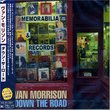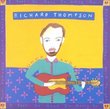| All Artists: Carlos Santana, Bill Laswell Title: Divine Light: Reconstructions & Mix Translation - Bill Laswell Members Wishing: 0 Total Copies: 0 Label: Sony Release Date: 7/31/2001 Genres: Dance & Electronic, International Music, Jazz, New Age, Pop, Rock, Classic Rock Styles: Avant Garde & Free Jazz, Jazz Fusion, Dance Pop, Rock Guitarists, Psychedelic Rock, Album-Oriented Rock (AOR) Number of Discs: 1 SwapaCD Credits: 1 UPCs: 074646138427, 5099750223925, 5099750223994 |
Search - Carlos Santana, Bill Laswell :: Divine Light: Reconstructions & Mix Translation - Bill Laswell
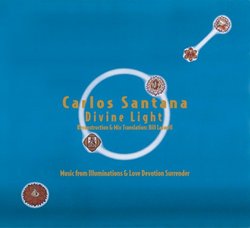 | Carlos Santana, Bill Laswell Divine Light: Reconstructions & Mix Translation - Bill Laswell Genres: Dance & Electronic, International Music, Jazz, New Age, Pop, Rock, Classic Rock
The music Carlos Santana released in 1973 and 1974, while heavily informed by his devotion to guru Sri Chimnoy, was hardly the lightweight worship fodder of some other religious rockers. In fact, only Santana's gorgeous, f... more » |
Larger Image |
CD DetailsSynopsis
Amazon.com The music Carlos Santana released in 1973 and 1974, while heavily informed by his devotion to guru Sri Chimnoy, was hardly the lightweight worship fodder of some other religious rockers. In fact, only Santana's gorgeous, fluid guitar work marked it as rock at all; with the likes of John McLaughlin, Alice Coltrane, and a wide array of percussion and string players on board, the Santana/McLaughlin Love Devotion Surrender and Santana/Coltrane Illuminations had more in common with the rich, eclectic sound paintings that Miles Davis was then presiding over. Producer-musician Bill Laswell, having remixed and "reconstructed" Miles and Bob Marley tapes, now sequences much of the two LPs into this ear-opening suite. One of those records that seems designed to sound great at any time of day or night, Divine Light's thread moves through a gorgeously orchestral opener with hints of Indian music ("Angel of Air") to two John Coltrane compositions (a hypnotic translation of "A Love Supreme," a hushed "Naima"), a lengthy "Angel of Sunlight" with fervid solos by Santana, saxophonist Jules Broussard, and electric pianist Tom Coster, and the prayerful "Bliss: The Eternal Now" and "Meditation." With Santana's fame greater than ever thanks to Supernatural, the thought that Divine Light will reach some of those new ears is a happy one. --Rickey Wright Similarly Requested CDs
|
CD Reviews"There is never any end"- John Coltrane Enrique Torres | San Diegotitlan, Califas | 12/20/2001 (5 out of 5 stars) "Revisiting this era of Santana's music is like taking a bath in the river Ganghes, a cleansing of the spirit again....or as David Bryne sang in one of his classic songs "same as it ever was." Producer extraordanaire Bill Laswell, who has worked with many giants in the music industry, has teamed up with Santana to reconstruct music from Carlos Santanas "Devadip" daze, or do I mean days? For those that weren't around or missed it, here is your chance to hear it again with slight modifications that don't disrupt the original recordings but actually enhance it. I was skeptical because I hated Laswells disc of Bob Marley songs in an ambient mode, I even returned it! There is no extraneous noise here, only vital music. There is none of the radical transformation either, just a sweetened version of the originals("Love, Devotion and Surrender" & "Illumminations") on one disc, featuring some truly explosive guitar riffs and solos by Santana and John McLaughlin. The spiritual nature of this disc is evident, just check out the names of the songs. It has an India feel to it, complete with tablas, mixed with Latin percusssion and strings that include violas, cellos, violins and bass under the direction of harpist Alice Coltrane, the wife of the late great John Coltrane. The version of "A Love Supreme" is superb, complete with incantations at the end, a true masterpiece and an excellent interpretation of the Trane classic. He also borrows two songs from Alice Coltrane, her composition "Bliss: The Eternal Now" & "Bliss:The Eternal Now - Return." Alice Coltrane's cascading, heavenly harp is featured, juxtaposed with Carlos Santana's erie guitar work that bends and lingers with a dissonance reflective of the title............ommmmmmmm! This is great stuff for old and new fans of Santana, featuring his spiritual side that we all possess and his music just helps unleash the inner sactum. These essential recordings, that are nearly 30 years old, have been revitalized and reenergized with modern studio techniques and sound even better than the originals. The art work within the disc jacket is an additional bonus and very cool too, much like a surrealistic Dali vision. A must have for fans of the music of Carlos Santana." Revisiting old spirits...and making the whole trip BETTER. David S. Minjares | Montebello, CA. USA | 08/09/2001 (5 out of 5 stars) "When Bill Laswell & Carlos Santana are mentioned in the same breath, one has to scratch the head. Bill Laswell...Material, Painkiller, Axiom, etc. Carlos Santana...Woodstock, Latin-Rock fusion innovator, multi-Grammy winner, genuine spirit, etc.And yet, who is the instrumental party that brings these two full circle? You guessed it. Miles Davis."Divine Light" is more than just a reconstruction of two very challenging Carlos Santana titles, but a definitive shaping of the very best the two originals had to offer. Let me explain..."Love, Devotion, Surrender", the 1973 duet collaboration between Santana & Mahavishnu Orchestra guitarist John McLaughlin, was kind of a tough one to swallow if not fully prepared. When I first heard it, it was a devastating experience for me, with "Caravanseri" still very fresh and impressionable in my mind (for a six year old). The wild fusion jamming was, I thought, rather self-indulgent and, though it had its moments of beautiful playing, a mess. Even being reunited with it in 1989 with plenty of music aggression under my belt, it still left me cold.The 1974 Santana/Alice Coltrane collaboration "Illuminations" was an even divide for me as well. The first side's combination of guitar, jazz unit, harps, strings & piano was a beautiful and strange listening experience. It was also one of the very first aural trips (for me) into absolute etherealism. The second side, on the other hand, was another self-indulgent trip, through the musicianship was much better, still, it was a tough pill to swallow.So how does Bill Laswell do it? Bring these two ambitious yet uneven efforts together as one? Laswell is very sympathetic to the Middle Eastern influences more than the original records and gives them a badly needed (& definitive) beginning, middle & end. He uses a drone throughout the 60 minutes of this CD which variates between sitar/tamboura drone, organ drone, percussives and ambient purring. There are also some very subtle reverb and dub touches that are more complimentary to the music rather than throwing a splash of technology paint.And yet, it still maintains an unpredictability factor. Just listen to this in the dark and decide for yourself whether Santana/McLaughlin/Coltrane failed to meet their spiritual core. I think they did. Laswell goes further to restore that center and bring a remarkable respect to the musicians' overall work. When I first heard the Laswell/Miles Davis reconstruction ("Panthalassa"), my ears were immediately touched. It was an eerie reevaluation of Miles' fusion work and how supple the forms were. Laswell made an unintentional drama of those pieces, resembling the final death scenes in "Soylent Green" (with Edward G. Robinson viewing the images of past natural life on a big screen with music.). Come on, who ISN'T inspired by that film in one way or another?This one isn't as eerie as the Davis album, but there's plenty of moments that qualify as truly inspirational. I think some of the younger generation recently weaned on "Supernatural" will find this album a major shock. They will not be prepared for the absolute power of this man's guitar in the forefront and in duets with McLaughlin & Coltrane, or even backed by Billy Cobham, Jack DeJohnette, Larry Young, Jan Hammer, Dave Holland or even the underrated Jules Broussard. When this man cooked during the 70's, live or on record, he was a one-of-a-kind force to be reckoned with. I hope this album will give people a second chance to hear this period, as uneven as it was. The great thing is that it comes full circle courtesy of an ambient soundhead visionary who, again, brought it a badly needed center. This is truly a past & present collaboration & update brought to you by very blessed talents. Let's hear more." High expectations, total disappointment sdw6 | Ithaca, NY United States | 08/14/2001 (1 out of 5 stars) "First of all, let me establish my credentials as someone who should have loved this album. I thought the job Laswell with the amazing but often unfocused electric Miles Davis was brilliant (Panthalassa). I also own several of the Santana albums from when he was Devadip Carlos Santana (though not the album Illuminations, from which half of the material on this album was drawn), and I've always thought that half the tracks sizzle while the other half are dragged down by self-conscious spirituality. There are times when nothing but the Santana/McLaughlin treatment of 'A Love Supreme' will do. So when I heard Laswell was giving the remix treatment to this period of Santana, I rushed out and bought.What a disappointment, though. The tracks from Illuminations (with the lone exception of 'Angel of Sunlight') are just drenched in strings and really overbearing harp. The guitar playing above the strings is not really that interesting. Jules Broussard, the sax player, doesn't get a chance to cook the way I know he can. Laswell's treatment of 'A Love Supreme' doesn't improve on the original, and in fact I think he muddies up the driving sparseness that makes the original something I go back to over and over.To be fair, track 6, 'Angel of Sunlight', is a keeper. But that's just 15 minutes of a 60 minute CD, and a CD I expected to have in my player constantly for the next two weeks, no less. I think this puppy is going to sit on my shelf instead."
|

 Track Listings (9) - Disc #1
Track Listings (9) - Disc #1